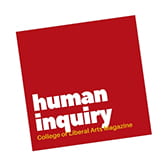Dr. José Carlos De la Puente, Associate Professor in the Department of History at Texas State University, is studying an ancient documenting system from the pre-Hispanic Andes region known as the quipu. Similar to the abacus, the quipu enlists lines of strings and knots to convey information. Unlike the abacus, the quipu is a method of extensive record keeping and census taking beyond mathematics.
The quipu coding system was established in South American and used by indigenous populations as a form of record keeping that predated written systems of communication. The quipu was not only used for everyday communication needs, but it was also used by the Incas, the Spanish, and other empire builders for record keeping.
“What seems like a simple marginalized indigenous technology,” says De la Puente, “actually played a central role in the administration of people and resources in the pre-Hispanic Andes up to the mid-19th century.”
Comprised of a series of knotted strings, threads, and other indicators, the quipu was one of the earliest ways that indigenous peoples began to record important historical events such as dates of birth and death and parishioner fees for marriages and funerals. Dr. de la Puente’s research started with an unlikely primary source that revealed how the quipu documented time–namely, a diary of a Peruvian man and his personal account of how people living in the region around Cusco kept track of time using the quipu. Through this man’s personal narrative, Dr. de la Puente could begin to decode the quipu messages–sometimes quantitative, sometimes qualitative and story-based–and find meaning in the strings and knots.
De la Puente’s work shows the importance of record keeping and story-telling the development and maintenance of society, and in the evolution of cultural history. It also shows how folkways and seemingly simple artifacts like the quipu leave a long legacy.
